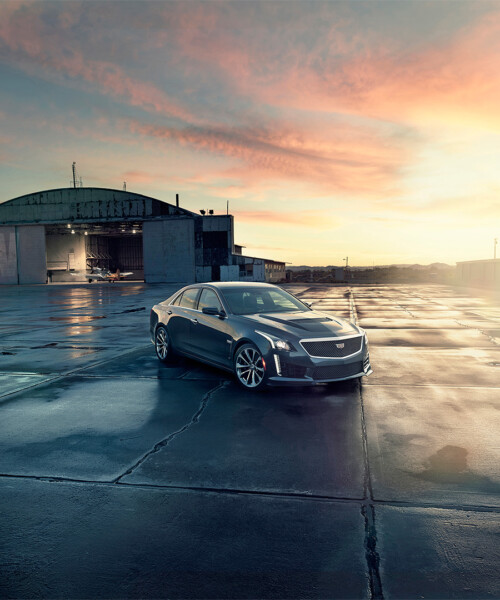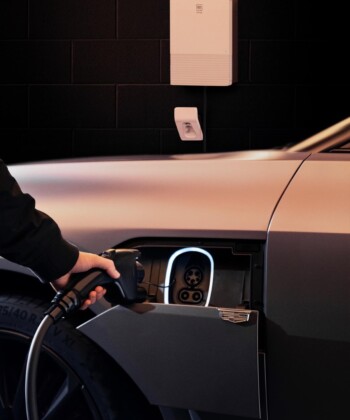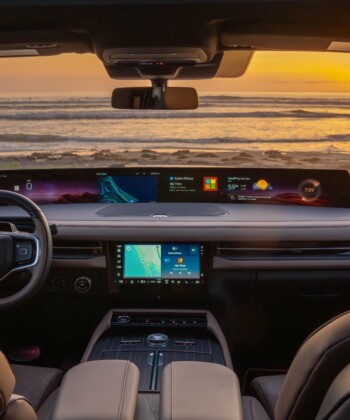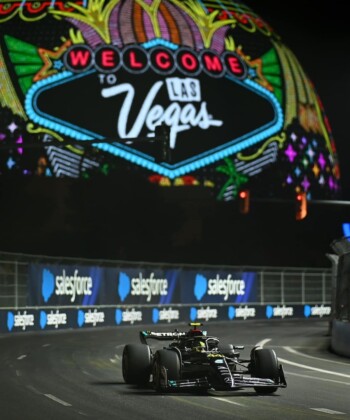American car manufacturing has been in a state of flux in the past decade, unsure how to position itself without the crutch of nostalgia. Big-budget commercials featuring cars driving the deserted streets of what looks like Batman’s Gotham while an actor makes marginally coherent philosophical remarks about what it means to be American have been the approach of choice, but have done little to incite drivers to take “American luxury” seriously when compared with European and Asian offerings. Cadillac has been no exception, most famously with last year’s spot regaling the triumphs of the “greatest generation”—high-fives all around for Americans landing on the moon nearly 50 years ago while the rest of the world lazily watched.
The irony, however, is that the cars Cadillac has been producing are, in fact, a formidable challenge to those of European luxury’s big three (Mercedes, BMW and Audi). Before I had a chance to sample the new midsize CTS and compact ATS luxury model lines, I was skeptical. I’ve become accustomed to the disappointment in most American “luxury” models of late, finding them a bland redress of the manufacturers’ base sedan and lacking a point of view in their styling despite the bells and whistles.
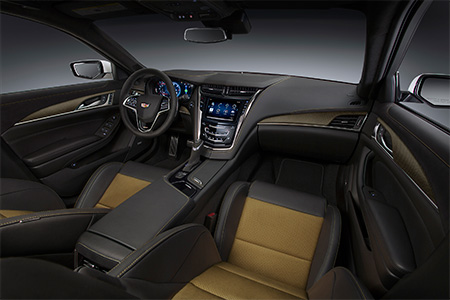
Inside a Cadillac
However, in the case of Cadillac’s high performance V-Series, there may well be some future classics in the crop. The steering and suspension of both the CTS-V and ATS-V are on par with, if not better than, their European counterparts, but more importantly, the cars retain a dash of Detroit—a personality in the exhaust note and enough power to push you back in your seat, or get the rear end a little loose around a curve—that gives them a distinctiveness that American luxury vehicles have lacked.
Cadillac’s CMO Uwe Ellinghaus, a former BMW exec, is the first to admit to befuddled messaging. “There was no way forward with Cadillac’s old positioning, which was more on the side of traditional luxury and comfort,” he says. “No one wants that anymore. We all want better looking and better driving cars, and now we deliver this.” Ellinghaus is German, perhaps giving him an outsider perspective less swayed by American nostalgia. He understands that in order for Cadillac to truly compete in a competitive global luxury market, harking back to its big, boatish sedans is less pertinent than demonstrating a willingness to listen to and deliver on the changing needs of today’s drivers.
In that spirit, Cadillac is relocating its world headquarters from Detroit to a city where many have gone to reinvent themselves: New York. The move is a step in the right direction in helping the brand regain cultural relevance, and will allow Cadillac to step out of the often insular thinking of a one-industry town. While product development and manufacturing will stay in Michigan, the New York operation will focus on building partnerships and brand awareness. Of course, history isn’t all forgotten: The move to Lower Manhattan is less about abandoning the epicenter of American automotive greatness than about starting a new chapter for a storied American luxury brand. As Ellinghaus predicts, “Going global in New York will keep the factories in Detroit busy.”


























